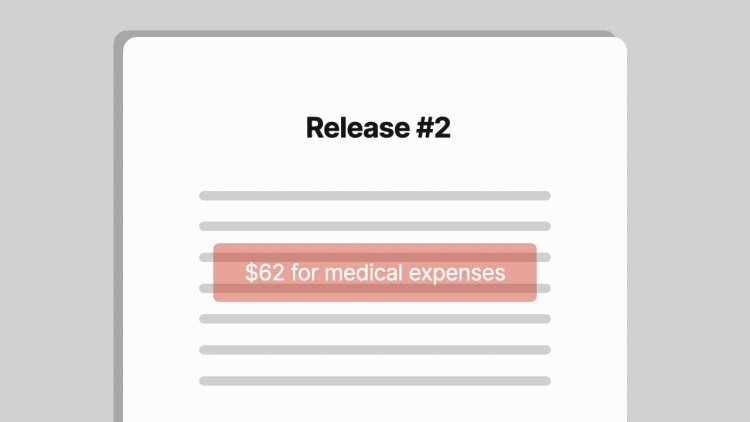Mitchell v. C.C. Sanitation Company, Inc.
Court of Civil Appeals of Texas
430 S.W.2d 933 (1968)

- Written by Sara Rhee, JD
Facts
R. L. Mitchell (plaintiff) was a truck driver for Herrin Transportation Company (Herrin). Mitchell was injured when his truck was hit by William W. Crane (defendant), a truck driver for C.C. Sanitation Company, Inc. (C.C. Sanitation) (defendant). Mitchell sued the defendants for approximately $40,000.00 in damages, which included pain and suffering, lost wages, loss of earning capacity, and medical expenses. Herrin sustained damages totaling $388.65, which included damages to its truck and a payment made to Mitchell’s physician as a result of the accident. Herrin had its claim for $388.65 handled by Ross C. Hall of Southwestern Claims Adjustment Company. Hall prepared two releases in favor of the defendants. The first was signed by Herrin and Mitchell for the $388.65, representing Herrin’s damages. The second was signed by Mitchell and represented $62.12 he had spent for medical care. Mitchell brought suit against Crane and C.C. Sanitation seeking to set aside the two releases on the grounds that he had signed them under duress. Mitchell alleged that Hall, working for Herrin and in conjunction with C.C. Sanitation, had threatened that Mitchell would lose his job if he did not sign the releases. According to Mitchell, he would not have otherwise signed the releases. The defendants moved for summary judgment on the ground that the releases were enforceable. The trial court granted the motion.
Rule of Law
Issue
Holding and Reasoning (Johnson, J.)
Dissent (Tunks, C.J.)
What to do next…
Here's why 910,000 law students have relied on our case briefs:
- Written by law professors and practitioners, not other law students. 47,100 briefs, keyed to 997 casebooks. Top-notch customer support.
- The right amount of information, includes the facts, issues, rule of law, holding and reasoning, and any concurrences and dissents.
- Access in your classes, works on your mobile and tablet. Massive library of related video lessons and high quality multiple-choice questions.
- Easy to use, uniform format for every case brief. Written in plain English, not in legalese. Our briefs summarize and simplify; they don’t just repeat the court’s language.





